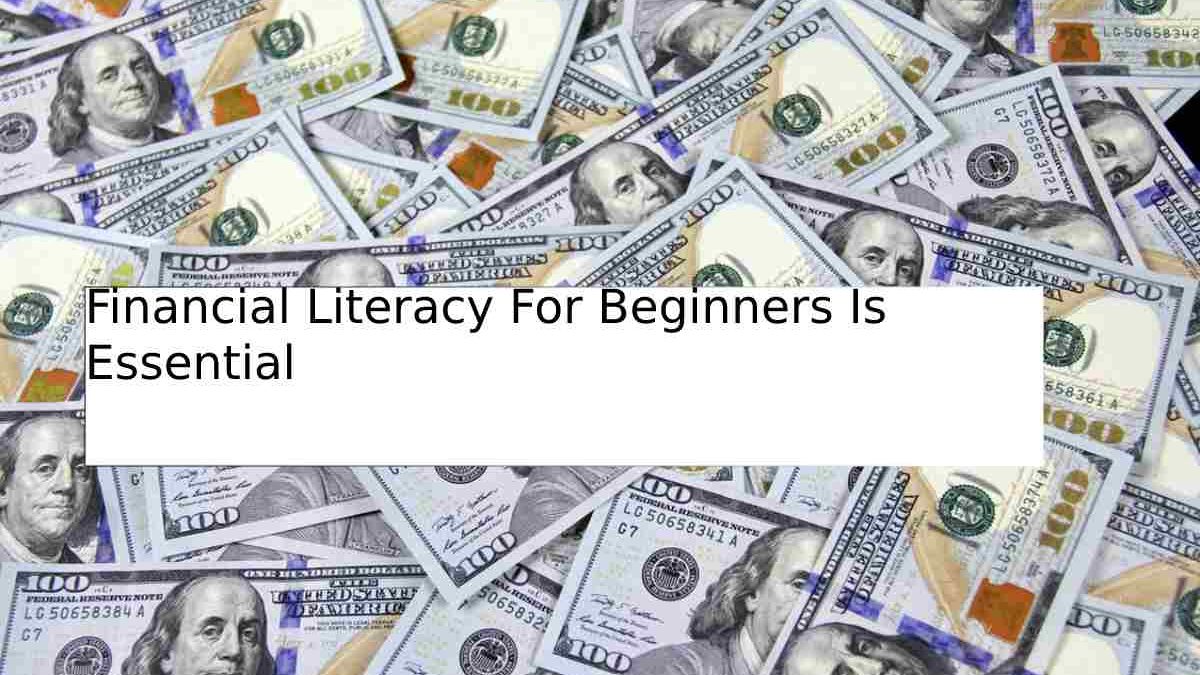Table of Contents
About Financial Literacy
Financial literacy for beginners is essential. You don’t have to be a rocket scientist to raise money. And you don’t need to be financially skilled to reap the benefits of financial literacy. Anyone can learn finance so that trainees can manage their money better.
Learning the basics of currency can help you avoid financial problems, achieve your goals, and improve your quality of life. The sooner you start learning basic finance skills, the sooner you will feel the benefits. Once you better understand the financial basics, you can create a budget and financial plan for your future.
According to the National Study of Financial Capability conducted by the Investor Education Foundation of the Financial Industry Regulatory Authority (FINRA):
“Americans have relatively low levels of financial literacy and struggle to apply their financial decision-making skills to real-world situations.”
When participants across the country were asked five basic personal finance questions, more than 66% could not answer more than three questions correctly.
The same survey shows that more than 46% of people don’t have enough money saved for financial emergencies.

Where Are You?
If you want to learn how to develop your financial skills, this article is for you. Here’s how to start creating your essential financial education guide for beginners to build and improve their knowledge of money.
components of financial education
Financial literacy is your knowledge and sympathy for money. It means you can recognize, understand, explain, and apply the fundamental areas of personal finance.
Financial literacy also means having faith in money and knowing its value.
What Are The Main Workings Of Financial Literacy?
Learning about money means knowing and dealing with money in everyday life, e.g., paying bills on time, managing the money you earn, and saving for retirement.
It also means knowing the difference between a need or desire, such as a roof over your head, and your 20th pair of boots.
Some Of These Core Areas Of Personal Finance Include:
- make or earn money
- save money
- Create an emergency fund
- budget
- money management
- net worth
- credit and debt
- Tax
- warranty
- Invest
- Understand compound interest
Why Is Financial Education Important?
Money doesn’t buy cheerfulness but can make your life less stressful and fun.
Even the most minor problem becomes a financial crisis if you don’t have money.
On the other hand, having money ensures that daily life does not become a problem.
And when problems happen because they happen, money makes them more manageable and less expensive to fix. You need to understand money to make wise decisions that will help, not hurt, you in life.
The Big Blues B.B. King once said:
“The beauty of knowledge is that nobody can take it away.”
Learning about money is no different. Once you have it, you can use it to benefit yourself. What explains the gender gap in financial education?
According to the RAND American, the gender gap in financial literacy can be caused by factors such as:
- training
- civil status
- income
Seeking professional financial advice is one way to close the gender gap in financial literacy. An economic or credit advisor can provide financial advice to help you learn and develop your financial skills.
Benefits Of Financial Education
The most important benefit of financial education is financial security.
With education and experience in dealing with money, you can secure your financial future.
Financial liberty is when you can do what you want, where you want since you have the cash to do it. Your control of money puts you in control of the quality of your life. It can help you save and finance your income to build wealth.
Financial literacy can also prepare you for opportunities like tax returns and inheritance. It can also help you develop extraordinary financial plans or plans for retirement.

